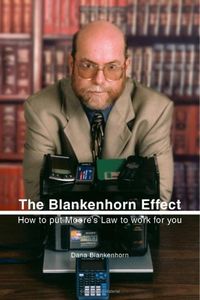Think of this as Volume 17, Number 23 of the newsletter I have written weekly since March, 1997. Enjoy.
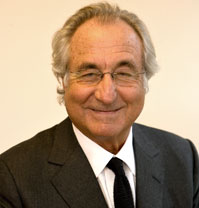
that some con artist or other acted “inhumanly” toward their
victims.
In fact, the con may be the most human
act there is. Because it is based on the one thing that most
separates us from other animals, story-telling.
Civilization begins with story-telling.
Whether it's in cave paintings or the words grandparents give
grandchildren, indicating a past before the kids' own births that was
different from the present day, it's story-telling that defines us as
human.
A con man is telling a story. And the
first person they tell that story to is themselves. They are their
own first “victim,” and their most important one.

Bernie Madoff isn't really taking responsibility, even now, for the
harm he did to other people, willfully, over so many years. The
reason is that he still doesn't think he did anything wrong, and
never will. The same is true for the other great con artist of the
last decade, George W. Bush. Was anyone surprised when his “decision
points” game at his Dallas library pointed people only toward
making the same decisions he made himself, based on the same lies he
believed then? I'm not.
This is what separates the con artist
from someone who, like Bill Clinton, just gets caught with their
pants down and tries to cover it up. The con artist believes their
own story. Clinton obfuscated, he avoided speaking the truth about
his affair, but he knew what it was, and it was thus fairly easy to
see through. Bush didn't. He conned himself, first, last and always,
and thus his con continues among his followers.
Con artists come in all shapes and
sizes. They may be a business partner. They may be a family member.
And their cons may be large or small. But always, the wrong they do
is covered up with a phony self-justification that the con artist
actually believes to be true. “I was just trying to help,” or “I
was just trying to do the right thing,” becomes “I was helping”
and “I was doing the right thing.”
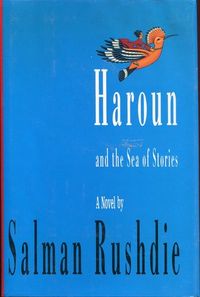
which I consider his master work, Salman Rushdie asks “what's the
point of stories that aren't even true?” They have many purposes.
In the story they eventually bring down a dictator. The adventure
Haroun experiences to save his father, the Shah of Blah, eventually
comes out of his father's own mouth, and as his audience is swept up
in the story they turn on the local dictator, Snooty Buttoo, the man
who'd hired the story-teller to spin lies supporting him, telling him
to be gone, “khattam shud.” And with that the city so sad it had
forgotten its own name, the city of K, remembers its name. Khalifa.
It means story, you know.
The best stories, like Haroun, aren't
over-complicated. They're stripped to their essence. Rushdie wrote
the book while under virtual house arrest following the Iranian
“fatwa” against him, a sentence of death that forced British
police to go to extraordinary lengths to protect him, moving him from
place to place under assumed names, surrounding him with officers,
making of him a prisoner in the name of his life and liberty. As he
recalls in the rigorously self-researched “Joseph Anton,” it was
irony piled on irony that eventually led to this basic truth, the
power of story-telling.
Every con artist has this gift, this
gift of the gab, this very human gift, within them. They believe
their own blah, and thus others believe them. They are friendly,
apparently open-hearted, displaying all the signs of a truth-teller
and a good, honest man or woman. And if you peel away the onion you
won't find any self-doubt within them, either. The act is total,
complete.
We believe con artists, once
discovered, to be inhuman because we don't want to believe the
capacity for such self-deception lies within each of us. But it does.
It's an essential element that makes us human.
But so is its obverse. We have, within
us, the ability to see through a con, and to reject the con artists
within us and without us. The con artist's hold is based on making
acting against him as difficult as possible, making the acceptance of
the con the path of least resistance.
A decade ago I faced two such cons.
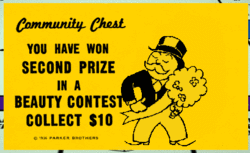
artist had convinced himself that cheating was the way to the greater
good. Having convinced himself, he convinced other community leaders
to believe the same, and to harrangue anyone who questioned this
questionable path. They made it hard for someone to do the right
thing, but apparently someone did. The con was found out, those who
perpetrated it were shamed out of the game, and everyone learned a
hard lesson.
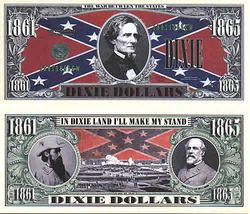
man brought in a lot of work, offered good pay to those who would do
the work, but spent all the money on himself and his partners, so
that when it came time to pay his workers he said he would “have”
to declare bankruptcy, but would then re-form the next day under
another name and pay workers part of what he owed, with more promises
to come. That con didn't work either, because someone stood up to him
and, knowing that everything owed would now be lost, not just most of
it, blew the whistle to bankruptcy authorities.
The honest way is the hard way. The con
way is the easy way. That's the only lesson I can take from these two
stories. But when all is said and done, the honest way leaves you
with only one story to remember, and no lies to tell. The con, on the
other hand, remains trapped in their own web of deceit, possibly
forever. Someone, reading the two paragraphs above this one, may
think that they recognize themselves, and that I'm telling lies, and
sue me over them.
But they're only stories. What's the
point of stories that aren't even true? Only that, somewhere deep
inside them, there may lie a truth that must be told.
So, have I just conned you? Do you
believe what I've written, or am I just telling stories? That's
something you have to decide for yourself. And what you have to do in
making that decision is, simply, to confront your own humanity and
decide what type of human you are.


